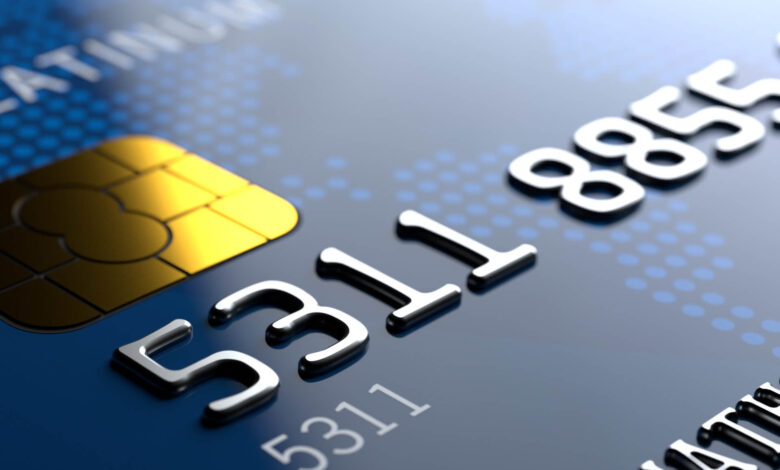Businesses Have Credit Scores, Too. Here’s Why They Matter

More and more business owners are paying attention to something many of them haven’t considered until now: their business credit. We’ll discuss about businesses have credit scores, too. Here’s why they matter.
According to a 2020 study by the Federal Reserve, 88% of small businesses rely on their owner’s personal credit for financing, as opposed to their business credit profile. But that’s changing, because creditwise markets are getting tighter in the recession caused by the pandemic and individual borrowers have a harder time obtaining loans.
Enter business credit, which is separate from the company owner’s and provides an opportunity for small businesses to keep operating as the economy contracts. Dun & Bradstreet, one of the three firms providing business credit scores, reports a significant increase in the number of businesses accessing their profiles.
“We work with over a million small businesses across the country, and we’ve seen a massive uptick, especially since the pandemic began,” says Joe Pascaretta, general manager of credibility at Dun & Bradstreet. “It’s a massive opportunity for owners to see where they stand as a business.”
A business credit profile doesn’t just determine creditworthiness. Business credit files and credit scores can also be used by federal and local authorities when selecting companies for government contracts, or by other companies looking for partnerships. Whether you’ve just opened your business or are an experienced business owner, now is the time to take control of your business credit score. You can understand and control what affects it.
What is a Business Credit Score?
You’re probably familiar with how to check and monitor your personal credit. The same concept applies when you check business credit, but with a few differences.
“The key difference between a business credit score and a consumer credit score is that the numbers are going to be much different,” says Gerri Detweiler, education director for small-business credit tracker Nav. “The scale for most consumer credit scores runs from 300 to 850, with 850 being the best score you can get. With business credit scores, they vary. It depends on the bureau, and the scoring model they are using.”
The most commonly used scores are the Dun & Bradstreet PAYDEX score and the Experian Intelliscore — each ranging from 0 to 100 — and the Equifax delinquency score, which ranges from 224 to 580.
A business credit file starts when small business owners apply for an Employer Identification Number (EIN) with the Internal Revenue Service, or establish a Data Universal Numbering System (DUNS) number with Dun & Bradstreet.
The EIN number is to businesses what a Social Security number is to individuals: a legal identifier used for various kinds of transactions. Sole proprietors, limited liability companies and partnerships, as well as large corporations, must all have an EIN number.
An EIN and DUNS number are not the same thing. While an EIN is a legal identifier with the IRS, which business owners use when they file taxes, the DUNS number is an identifier with Dun & Bradstreet, and is used to help companies establish their file with the credit bureaus. Businesses are not required to get a DUNS number, but, Pascaretta says, establishing one sooner can help them avoid errors on their credit report.
Once a credit file is established, credit issuers and vendors will report transactions to the three credit bureaus. Key information that goes on business credit files includes:
Business credit cards and lines of credit
Payment terms and history with industrial vendors (companies including Uline, Grainger, HD Supply and others)
Business accounts with suppliers (FedEx, UPS, and office supply stores)
Pro Tip
Even if your business is just starting out, it’s important to get a jump on managing your business credit score. Start by establishing an EIN and DUNS number, then use one of the monitoring services to continually check your progress.
How a Business Credit Score Is Calculated
Once you have established your business credit file, all three major credit bureaus can calculate your business credit score. While your personal credit score is based on how you manage your loans and credit cards, your business credit score is based on your loans, relationships with vendors, and whether you pay their bills on time.
Just like with a personal credit score, a higher number is better. Businesses with the best credit will have a score above 80, while a lower score suggests a struggle to pay the bills.
“When you look at the Paydex score, it’s a numerical rating,” says Pascaretta. “Businesses with a score between 80 to 100 are considered low risk, 50 to 79 is medium risk, and 0 to 49 is considered high risk.”
Missing a payment affects that number more quickly than it would a personal credit score. A missed personal credit card payment is only reported late if it’s not paid by the next monthly cycle. But if you miss a payment to another business, your late payment is reported immediately with the note “days beyond term,” or DBT for short.
For example: if your business has established a relationship with a supplier, on the agreement that you will pay “net 30” — or 30 days from the date of invoice — your business is expected to pay by that date. If your business pays on day 32, the supplier could report you as two DBT, which could immediately affect your business credit score.
How quickly your business pays bills isn’t the only measure that goes into your business credit score. To build strong credit, experts recommend establishing multiple business accounts with a variety of suppliers to show that your business has liquidity, can responsibly manage money, and is being run as a legitimate business.





